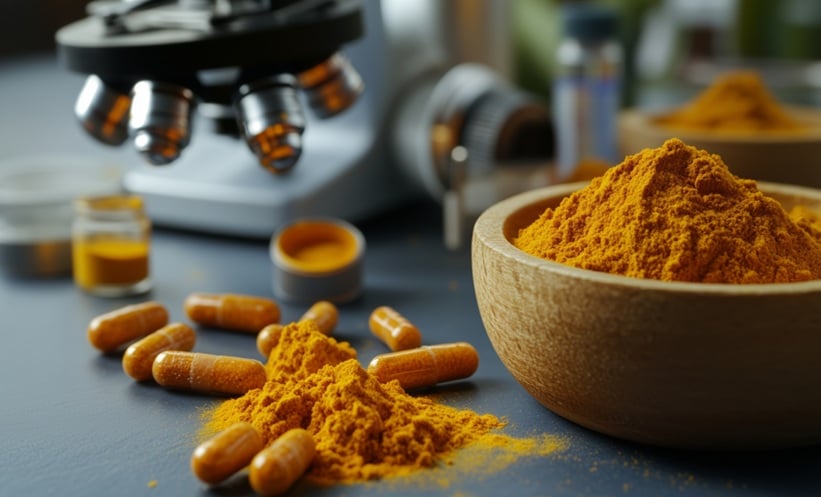A RECENT double-blind, placebo-controlled study has demonstrated the potential of curcumin, an active compound found in turmeric, as a promising supplement for managing Metabolic dysfunction-associated steatotic liver disease (MASLD).
MASLD, which replaced the term non-alcoholic fatty liver disease in 2023, is now the most prevalent chronic liver condition globally. It is strongly associated with obesity, type 2 diabetes, and metabolic syndrome, and is a leading cause of cirrhosis and liver cancer.
This 12-month study explored the impact of ethanol-extracted curcumin on liver health, inflammation, and metabolic parameters in individuals with MASLD. Using the non-invasive FibroScan 520 Touch, researchers measured hepatic steatosis and liver stiffness before and after curcumin supplementation. The results were encouraging: participants who received curcumin saw significant reductions in inflammatory markers (TNF, IL-1β, and IL-6), oxidative stress (malondialdehyde), and waist circumference, body mass index (BMI), and total body fat.
Notably, curcumin supplementation also led to improvements in glycaemic control, with reduced HbA1c and fasting glucose levels, an important finding given the close relationship between MASLD and Type 2 diabetes. Liver health also improved, as shown by decreases in controlled attenuation parameter (CAP) and fatty liver indices such as HSI and FLI.
Importantly, curcumin was well tolerated, with no serious adverse effects reported at the administered dose of 1500 mg/day. While liver stiffness reductions may reflect reduced inflammation rather than fibrosis reversal, the findings support curcumin’s role as a safe and accessible adjunctive treatment for MASLD.
The study’s strengths include its long follow-up period and comprehensive biomarker analysis. However, limitations such as the small, single-centre sample and absence of liver biopsy warrant caution. Further large-scale, multi-centre trials are needed to confirm these findings and determine optimal dosing. Nonetheless, this research adds to growing evidence that curcumin may offer metabolic, anti-inflammatory, and hepatoprotective benefits in the management of MASLD.
Reference
Yaikwawong M et al. Curcumin for inflammation control in individuals with Type 2 diabetes mellitus and metabolic dysfunction-associated steatotic liver disease: a randomized controlled trial. Nutrients. 2025;17(12):1972. 2025;DOI:10.3390/nu17121972.








